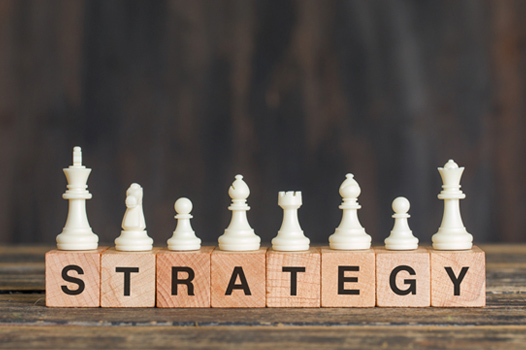What Great Talent Strategies Get Right About Coaching
by Mentoring Matters
4 minutes read
We’ve all witnessed the well-intentioned flurry of training programmes that descend upon organisations like well-meaning but ultimately fleeting summer showers. Employees attend, knowledge is (hopefully) transferred, and then… life, as it were, resumes.
Yet, why does a gnawing sense of a talent gap often persist?
Because talent development too often focuses on filling present-day boxes, not cultivating future-ready minds. The strategic advantage lies not just in upskilling for now, but in igniting the adaptive capacity of our people for the next. And the most potent catalyst for this? A coaching strategy that’s built in, not bolted on.
Think of it this way: training delivers the ‘what’. Mentoring offers the ‘how I did it’. Coaching unlocks the ‘how you can do it’ by helping individuals tap into their strengths, recognise blind spots, and chart their own path forward.
Consider a global IT services company grappling with the rapid evolution of cloud-native architectures and the increasing demand for cybersecurity expertise. Instead of solely relying on certification programs, they implemented "Agile Innovation Hubs." Each cross-functional team was paired with a coach, not to teach coding or security, but to foster agile mindsets, rapid problem-solving, and a culture of continuous learning. The coaches didn't teach specific coding languages or security protocols. Instead, they facilitated problem-solving, encouraged rapid experimentation, and helped team members develop the meta-skills of adaptability and collaborative learning.
The outcome? Faster project cycles, more innovative solutions tailored to emerging client needs, and a team that wasn't just learning new technologies, but learning how to learn in a constantly shifting landscape. This wasn't about filling a specific tech gap; it was about building a future-proof IT workforce.
Why Coaching Works (When It’s Strategic)
Coaching is at its most powerful when it’s embedded in the flow of work not reserved for problems or promotions. A strategic approach ensures that coaching:
• Supports succession planning by preparing future leaders for real-world challenges
• Strengthens high-potential development through personalised, high-accountability guidance
• Drives organisational alignment by connecting individual growth to business impact
Instead of being reactive, coaching becomes a proactive mechanism for building capability where it matters most.
Coaching, Tailored to Context

A mature coaching strategy doesn’t offer one-size-fits-all solutions. It matches coaching types to talent needs and business objectives:
Executive Coaching: Yes, it’s still crucial for honing the leadership acumen of those at the helm. But modern executive coaching goes beyond simply refining boardroom presence; it’s about challenging assumptions, fostering strategic agility, and cultivating the emotional intelligence needed to navigate complex organisational terrain.
Leadership Development Coaching: This is where the real magic happens for building your future leaders. By embedding coaching into high-potential programmes, you’re not just identifying talent; you’re actively nurturing it. This could involve individual coaching sessions focused on specific leadership competencies, or even coaching pods where emerging leaders learn from each other’s challenges and successes.
Skills-Based Coaching: Need to refine a specific competency or shift behaviour patterns within your team? Targeted coaching interventions can provide personalised support and accelerate the learning curve far more effectively than generic training modules. This ensures that learning is not just theoretical but practically applied and embedded in daily work.
Performance Coaching: While often seen as addressing underperformance, performance coaching, when implemented proactively, can be a powerful tool for maximising individual and team effectiveness. It focuses on identifying strengths, addressing development areas, and setting clear, actionable goals, ensuring everyone is operating at their peak.
The Ripple Effect of Coaching

Strategic coaching doesn’t just benefit the individual. It multiplies its impact across teams and functions:
• Coached employees collaborate better
• Coached leaders build more engaged teams
• Coached organisations adapt faster
Done well, coaching builds a culture of learning, feedback, and accountability that sustains itself long after a single session ends.
Coaching Is Not a Nice-to-Have. It’s a Strategic Lever.
In a business environment defined by change, talent agility is no longer optional. Coaching offers a way to future-proof your people by building confidence, capability, and clarity at every stage of their journey.
The question isn’t whether to invest in coaching. It’s whether you’re ready to unlock its full strategic advantage.
- Previous article:
- Next article: